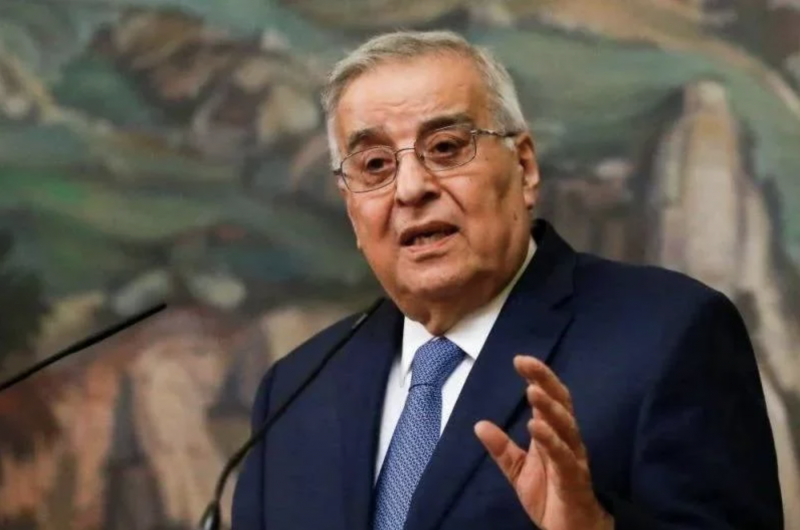
Lebanese caretaker Foreign Minister Abdallah Bou Habib in Moscow, November 22, 2021. (Credit: Evgenia Novoz Henna/AFP)
BEIRUT – Caretaker Foreign Minister Abdullah Bou Habib and UN Special Coordinator Joanna Wronecka discussed "the situation in the south and the importance of implementing Resolution 1701," Bou Habib's press office said in a statement relayed by the state-run National News Agency Wednesday.
UN Security Council Resolution 1701, which put an end to the 2006 war between Hezbollah calls for the full cessation of hostilities, the deployment of Lebanese Armed Forces to southern Lebanon, parallel to the withdrawal of Israeli forces behind the Blue Line and the establishment of a demilitarized zone between the Blue Line and the Litani River, where Hezbollah operates.
Since Oct. 8, 382 people have been killed in Lebanon when Hezbollah and Israel began their almost daily cross-border fire.
Bou Habib and Wronecka also discussed the "ramifications of the Syrian refugee crisis and the role of the United Nations through its organizations in assisting Lebanon in overcoming this crisis."
The Lebanese government continues to discuss plans to expel illegal migrants, as well as its desire to deport those detained since April 15, while the international community opposes any non-voluntary return, particularly with regard to political refugees who risk persecution in their own country.
At the beginning of May, when European Commission head Ursula von der Leyen was in Lebanon, the EU announced an aid package for Lebanon of 1 billion euros – about $1.06 billion – much of which will go to "boost border control to halt the flow of asylum seekers and migrants."
'Financial constraints'
Bou Habib also discussed with UNRWA Director-General Dorothee Klaus on Wednesday "the difficulties facing UNRWA in covering the needs of Palestinian refugees in camps in Lebanon, due to financial constraints."
According to UNICEF, around 210,000 Palestinian refugees live in Lebanon in deteriorating conditions as Lebanon grapples with one of the worst economic crises since the mid-nineteenth century according to the World Bank.